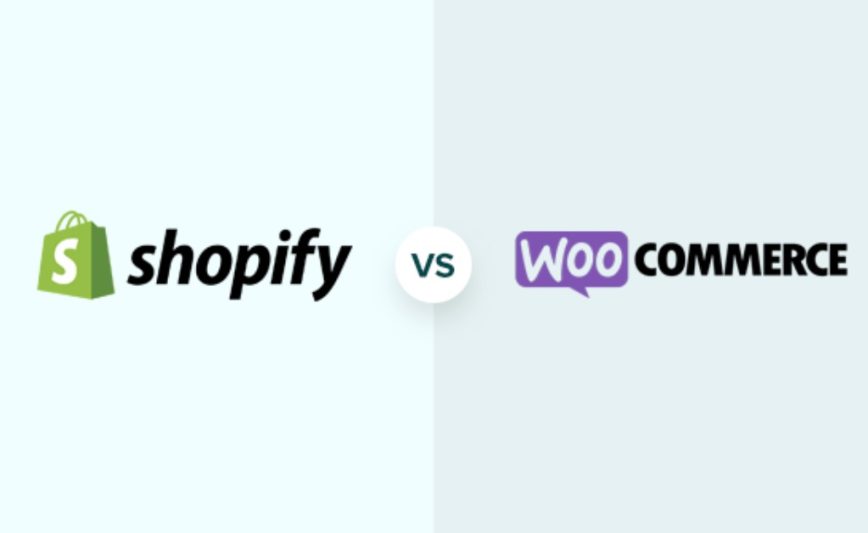Is Shopify Better Than WooCommerce – With the ever-increasing popularity of e-commerce, choosing the right platform to build your online store is crucial. Two of the most widely used options are Shopify and WooCommerce. In this article, we will compare the two platforms across various aspects to help you make an informed decision for your business. So, let’s dive in and explore the features, customization options, pricing, scalability, SEO capabilities, and more.
Overview of Shopify
Shopify is a comprehensive and user-friendly e-commerce platform that allows you to set up an online store without any technical expertise. It provides a hosted solution, which means your store is hosted on Shopify’s servers. This eliminates the need for separate web hosting and simplifies the setup process.
Overview of WooCommerce
WooCommerce, on the other hand, is an open-source plugin for WordPress, the popular content management system. It transforms your WordPress website into a fully functional e-commerce store. WooCommerce offers extensive customization options and flexibility, making it a preferred choice for those already familiar with WordPress.
Pricing and Cost Comparison
When it comes to pricing, both Shopify and WooCommerce have different cost structures. Shopify offers various pricing plans starting from basic to advanced options, with additional transaction fees for using third-party payment gateways. WooCommerce, being open-source, is free to use, but you’ll incur costs for a domain, hosting premium themes, and extensions.
Ease of Use
Shopify is renowned for its intuitive interface and user-friendly setup process. It provides a visual drag-and-drop editor, making it easy to customize your store’s appearance. WooCommerce, although slightly more complex due to its integration with WordPress, offers a familiar interface for WordPress users and requires some technical knowledge for initial setup.
Customization and Flexibility
When it comes to customization, WooCommerce takes the lead due to its integration with WordPress. With thousands of themes and plugins available, you have full control over the design and functionality of your store. Shopify also offers customization options, but they are more limited compared to WooCommerce’s vast selection.
Features and Functionality
Shopify offers a wide range of built-in features, including inventory management, order tracking, abandoned cart recovery, and more. It also provides a variety of apps and extensions to enhance your store’s functionality. WooCommerce, being a plugin, relies on WordPress for most of its features, but there are numerous WooCommerce-specific extensions available to extend its capabilities.
Scalability and Performance
Both Shopify and WooCommerce can handle large-scale e-commerce businesses, but there are differences in scalability and performance. Shopify’s hosted infrastructure ensures high performance and stability, regardless of your store’s size. WooCommerce’s performance depends on the hosting provider and optimization efforts, making it suitable for those who prefer complete control over their store’s environment.
SEO and Marketing Capabilities
Shopify offers built-in SEO features and tools to optimize your store for search engines. It provides options to edit meta tags, URLs, and alt text, among other SEO-friendly features. WooCommerce, being integrated with WordPress, leverages the robust SEO capabilities of WordPress and offers various SEO plugins to further enhance your store’s visibility.
Support and Resources
Shopify provides 24/7 customer support through various channels, including live chat, email, and phone. They also offer extensive documentation and a supportive community. WooCommerce offers community support through forums and extensive documentation but doesn’t provide direct customer support unless you opt for a paid extension or service.
Security and Payment Options
Both Shopify and WooCommerce prioritize security. Shopify takes care of security measures, including SSL certificates and PCI compliance, as part of their hosting service. WooCommerce’s security relies on your chosen hosting provider. In terms of payment options, Shopify supports over 100 payment gateways, while WooCommerce offers numerous options through plugins.
Integrations and Add-Ons
Shopify boasts a robust app store with a wide range of integrations and add-ons to enhance your store’s functionality. These integrations cover various aspects, including marketing, analytics, shipping, and more. WooCommerce offers a vast library of plugins, extending its capabilities with third-party integrations, and making it highly flexible and adaptable.
Pros and Cons of Shopify
- Pros:
- User-friendly interface and setup process
- Robust and reliable hosting infrastructure
- Extensive app store for additional features
- Excellent customer support
- Cons:
- Transaction fees for third-party payment gateways
- Limited customization options compared to WooCommerce
Pros and Cons of WooCommerce
- Pros:
- Complete control over customization and functionality
- Vast selection of themes and plugins
- Seamless integration with WordPress
- Cost-effective for small-scale businesses
- Cons:
- Requires technical knowledge for initial setup
- Performance depends on hosting provider and optimization efforts
Conclusion
Ultimately, the choice between Shopify and WooCommerce depends on your specific needs and preferences. Shopify offers an all-in-one, user-friendly solution with reliable hosting, extensive features, and excellent support. On the other hand, WooCommerce provides complete control, flexibility, and cost-effectiveness, especially for those already using WordPress. Consider factors like pricing, ease of use, customization, scalability, and SEO capabilities to make the best decision for your online store.
FAQs
Can I migrate my online store from WooCommerce to Shopify? Yes, you can migrate your store by using built-in or third-party migration tools to transfer products, customers, and other data. Is WooCommerce suitable for large-scale e-commerce businesses? Yes, WooCommerce can handle large-scale businesses with proper hosting and optimization. Can I use Shopify if I have my own hosting? No, Shopify is a hosted solution, and you must use their hosting services. Which platform offers more payment options? Shopify supports over 100 payment gateways, offering more options compared to WooCommerce.Does WooCommerce require coding knowledge for customization?
Basic customization can be done without coding knowledge, but more advanced customization may require some technical expertise.com Domain Registration | Buy a .com Domain Name Today
Search The Domain Name You Want com Domain Registration – The internet has become an
-
Best Ransomware Detection Techniques
22 May 2023 -
What is Drupal used for?
22 May 2023 -
Is PrestaShop a CMS or Framework?
22 May 2023







